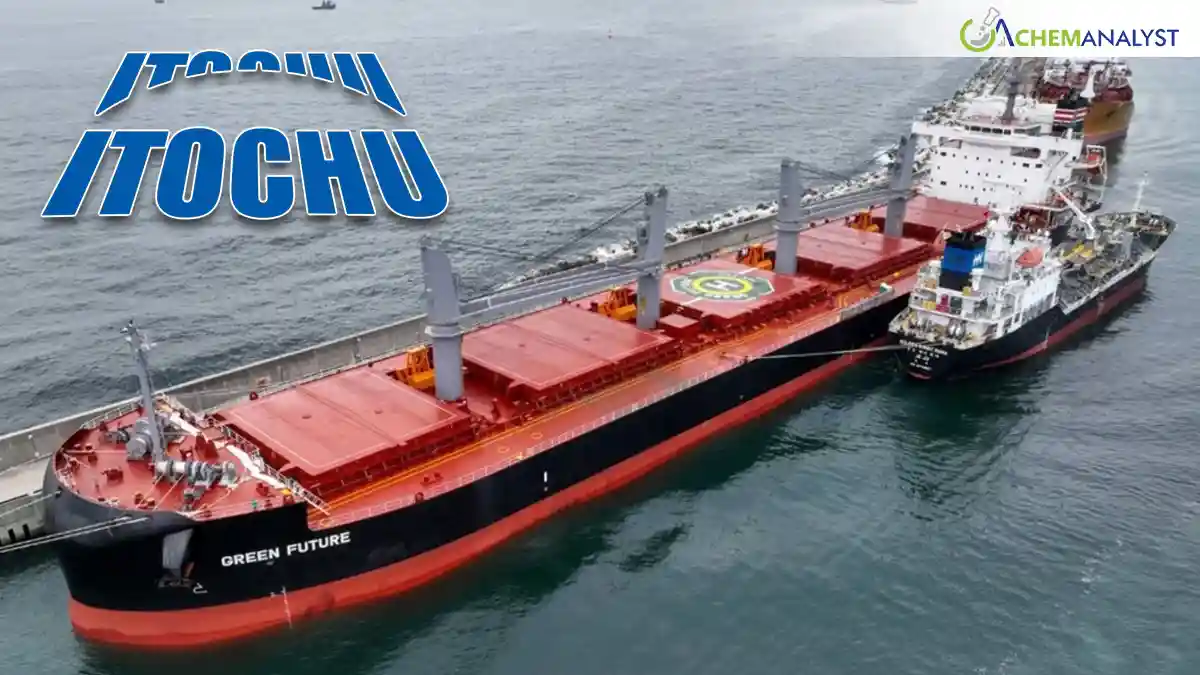Welcome To ChemAnalyst

This operation accelerates the development of a low-carbon marine fuel supply chain and aligns with global efforts to decarbonize the shipping industry.
In a significant step towards decarbonizing the maritime sector, ITOCHU Corporation announced on September 30, 2025, the successful supply of low-carbon methanol fuel to a vessel operated by NYK Line. The bunkering operation—the process of supplying fuel to a ship—was performed via the ship-to-ship (STS) bunkering method for the Green Future, a methanol dual-fuel bulk carrier regularly chartered by NYK Group company NYK Bulk & Projects Carriers Ltd. The operation took place on September 28 at the Port of Ulsan in South Korea.
The marine transportation industry is under increasing pressure to reduce its significant share of global greenhouse gas (GHG) emissions. With the global economy expanding and cargo volumes projected to rise, the swift adoption of alternative, low-carbon marine fuels is an urgent necessity. This bunkering operation directly supports the ambitious targets set by international and national bodies. The International Maritime Organization (IMO) has established a strategy aiming for net-zero GHG emissions from international shipping by around 2050. Simultaneously, the Japanese government is promoting alternative fuels as part of its goal to reduce GHG emissions by 46% versus the fiscal 2013 level by 2030 and achieve carbon neutrality by 2050.
The low-carbon methanol fuel supplied by ITOCHU is produced from biomass-derived raw materials, resulting in a fuel whose life cycle GHG emissions are expected to be significantly lower than those of conventional fossil fuels, such as heavy oil. This characteristic is crucial for shipping companies like NYK Line that are committed to transitioning their fleets.
Methanol's increasing popularity as a marine fuel is driven by several key advantages. It is a liquid at normal atmospheric temperatures and pressures, which means it can be handled using relatively minor modifications to existing bunkering and storage infrastructure. This ease of integration significantly lowers the barrier to entry for its widespread adoption. The growing number of dual-fuel carriers, which can run on both methanol and conventional heavy oil, further underscores the industry's commitment to this fuel pathway.
For ITOCHU, this successful bunkering operation in Ulsan is a critical milestone in its broader corporate strategy. The company is actively working to accelerate the development of a comprehensive supply chain for low-carbon alternative fuels within the marine transportation sector. This initiative is being driven by what ITOCHU terms "real demand," signaling a market-led approach to the energy transition.
We use cookies to deliver the best possible experience on our website. To learn more, visit our Privacy Policy. By continuing to use this site or by closing this box, you consent to our use of cookies. More info.
